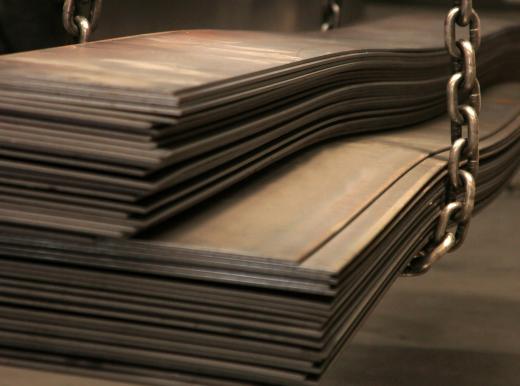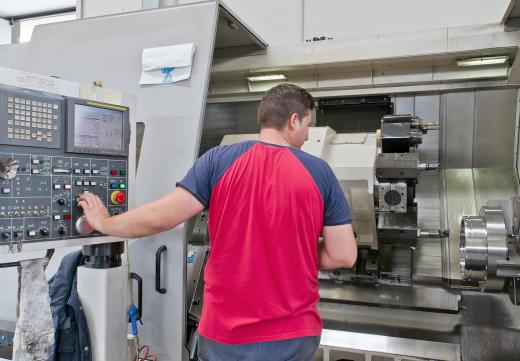A computer numerical control (CNC) plasma cutting system uses gases that have been superheated into plasma to cut patterns. These systems are made up of a plasma cutting tool, some form of manipulator for the tool, a base table and a computer interface that controls the cutting. They are used in both small- and large-scale manufacturing of parts from materials, such as sheet metal, that involve two-dimensional cutting.
Plasma cutting has its origin in World War II-era welding, and later, the plasma torch. In order to use this technology to cut rather than to simply melt, gas is superheated into plasma, which is a state of matter. This plasma is sent through a very small opening at high speed. When it comes into contact with the material to be cut, the plasma first melts it, then blasts through the melted material, puncturing it and beginning the cutting process. The piercing might be almost instantaneous or take up to two seconds, depending on the thickness of the material.

A typical CNC plasma cutting system has a plasma cutter head mounted on a sliding shaft so that it can move in both the X and Y directions. This assembly is fixed to a bed where the materials to be cut are held in place. Beds for a CNC plasma cutting system generally use either water or a downdraft to cool the plasma after it emerges from the other side of the material. This keeps the assembly from getting too hot.

The term "computer numerical control" refers to how the cutting head is guided: the CNC plasma cutting system takes a computer-generated design and translates it into the specific X and Y motions needed to cut that design into the material. Thus, unlike manual plasma cutting, a CNC plasma cutting system requires a computer interface to issue the cutting commands. Use of computer numerical control allows designs to be cut quickly and automatically from a single pattern.
Plasma cutting is usually used only for two-dimensional manufacture, because of the nature of the cutting system. It is frequently used in steel cutting and working with other materials that might be very fragile or difficult to cut. The computer control also allows for intricate designs and tight corners, because the plasma column’s shape gives it a very small turning radius. This customizable control makes it useful for shops that regularly do precision machining.
